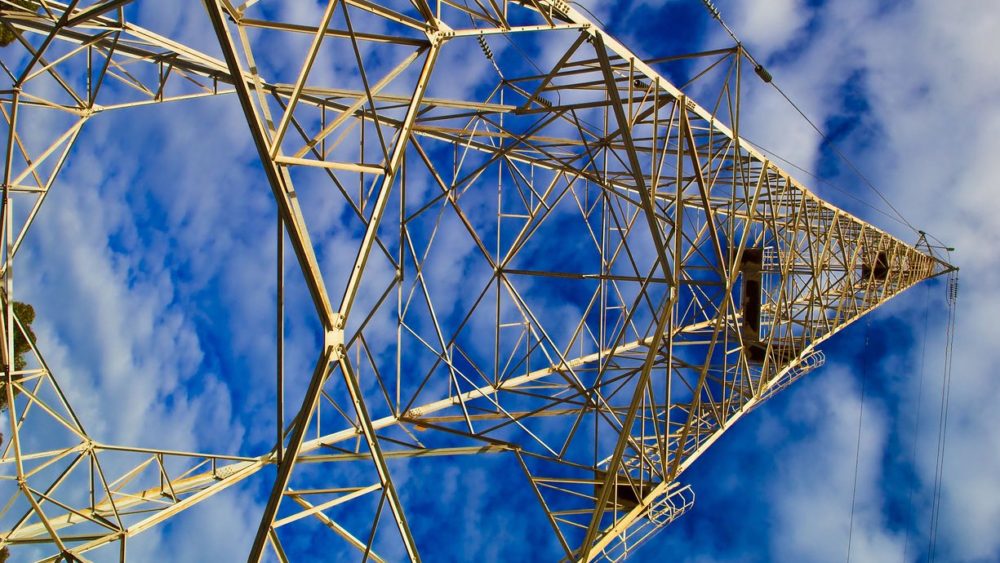Competition watchdog will urge companies to sell to the domestic market, as South Australia reveals its plan to head off further power cuts
The head of Australia’s competition watchdog will urge gas companies to support the domestic market to ensure struggling manufacturers don’t go to the wall, as the Turnbull government mulls options for boosting domestic gas supply to head off forecast shortages.
The chairman of the Australian Competition and Consumer Commission, Rod Sims, will outline his views on the east coast gas crisis in a speech in Sydney on Tuesday, as the South Australian government unveils a blueprint to shore up the state’s unreliable power network, perhaps including new investment in baseload power and storage.
On Monday the Grattan Institute issued a new report, which warns governments may need to re-regulate electricity prices because a decade of competition has failed to deliver the promised consumer benefits.
The report says the introduction of competition in power generation and electricity retailing throughout the 1990s should have put downward pressure on prices, yet power bills have soared in the past decade, almost doubling in Sydney, Melbourne, Brisbane and Adelaide.
With the energy debate intensifying political pressure on a number of fronts, Malcolm Turnbull had a series of briefings on Monday from agencies including the Australian Energy Market Commission and the Australian Renewable Energy Agency.
The prime minister is scheduled to meet senior executives from the gas industry on Wednesday.
Turnbull summoned the gas chiefs to this week’s crisis meeting after the Australian Energy Market Operator issued a pointed warning last week that New South Wales, Victoria and South Australia were likely to face gas shortages as of the summer of 2018-19.
Ahead of his speech on Tuesday to a gas outlook conference in Sydney, Sims told Guardian Australia the ACCC remained opposed to a domestic gas reservation policy.
While ministers in energy portfolios have objected to reserving gas for domestic use, Turnbull has left the option open and has been urged by some to adopt it to avert a full-blown energy crisis.
Sims told Guardian Australia on Monday it was the wrong way to go. “We made our views very clear about gas reservation in our April 2016 inquiry report and the concern is that it might decrease incentives for investment.”
He said reservation policies deterred new investment. “In terms of bigger projects that might service both LNG and domestic, you run a risk of making it harder for them to go ahead, and that doesn’t seem to be a terribly sensible thing to do.”
In his speech to be delivered on Tuesday, Sims says the ACCC had been warning of a looming gas crisis for 12 months.
“The outlook for gas supply is now even worse than it was a year ago; indeed, our worst fears are being realised,” Sims says.
His speech warns the scarcity of available gas on the east coast has triggered price increases, and a significant reduction in gas used for electricity generation, which is likely to “flow through to significantly higher prices for residential customers”.
He says Australian manufacturers are exposed. “Some are experiencing difficulties gaining supply; all are, or seem likely to, face huge price hikes that will perhaps permanently damage their businesses.”
Sims says unless action is taken – including boosting supply by ending the current state-based moratoria on gas exploration – plants could close.
“Australia often makes it hard to be involved in manufacturing. We are now making it extremely difficult, if not impossible, for some,” he will say.
He advises the gas companies to look more carefully at servicing the domestic market rather than directing most of their product overseas. “They could, for example, weigh carefully their willingness to sell gas on the LNG spot markets above meeting their contractual commitments,” his speech says. “Alternatively, they could develop additional gas for the domestic market.”
The Grattan report released on Monday night looks at the challenges posed by soaring energy prices, and points out that consumers struggle to find better deals to reduce their power bills because they find the market too complicated.
“As a result many Australians, including some of the most vulnerable, pay more than they need to,” the institute’s energy program director, Tony Wood, says.
Wood says the way retailers present discounts is “confusing and possibly misleading” and competition is not driving innovation in customer services.
“Retailers have been slow to build offers based on the benefits available through smart meters, or the bundling of new technologies such as solar power and battery storage systems,” he says.
Wood said energy retailers needed to clean up their act, or political pressure would increase for price regulation.
Responding to the report, Turnbull said the government believed households and businesses were “paying too much for their electricity”.
The prime minister said the electricity review being led by the chief scientist, Alan Finkel, was examining the merits of increasing price transparency.
On Monday the South Australian treasurer, Tom Koutsantonis, declared the national electricity market was “broken”.
“There needs to be national leadership and in the absence of that national leadership, South Australia will act to secure our own interest, to make sure we’re self reliant,” Koutsantonis said in Adelaide.
The SA government has briefed energy companies about the direction of Tuesday’s commitments, but has not briefed the commonwealth about its intentions.
“Fundamentally, the commonwealth government are not interested, they’re not interested in our solutions, not interested in national policy, they’d rather hand around lumps of coal,” Koutsantonis said.
Ahead of Weatherill’s announcement, the Tesla founder and tech billionaire Elon Musk thanked Australians for supporting his plan to boost the SA power system with additional battery storage.
Guardian

